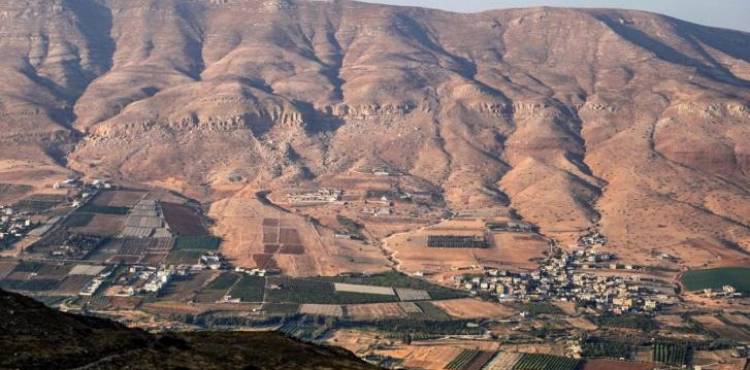“This is our land.” This was the most prominent Palestinian Mahmoud Hayel Bisharat was keen to emphasize while sitting on a metal bed in his makeshift house covering his ceiling with leather in Jordan Valley.
"Five months ago, (Israeli) soldiers came. They destroyed all of this," said the 39-year-old, pointing outside where his former home was.
His 74-year-old father intervenes to confirm: "They destroyed everything, everything."
Basharat Al-Son reviewed notifications he received from the Israeli army that he had illegally built his house on this land.
Over the past two decades, the Israeli army has destroyed the structures that the family built on this piece of land in Homs Al Tahta.
From a distance you can see an Israeli "moshav", that is, an agricultural community. This is a type of Jewish settlement located throughout the West Bank, and it is populated by more than 450,000 Jews.
Basharat asks why the Jews who live there, including immigrants from Russia and other regions, have access to electricity and water supplies while he does not.
He asked, “Let (US President Donald) Trump give up his land in the United States, not ours!” Stressing that many Palestinians see the White House as collusion with Israel for the sake of annexation that Israel says will begin within days.
Bishara´s father has 12 children, all of whom have children, making the extended family of 84 people. After Israel repeatedly destroyed their simple homes, most of them moved to villages in deeper areas of the West Bank, near the Palestinian city of Nablus.
There are only nine of them left in their herding community, and it is one of 47 "Area C" areas in the Jordan Valley, where about 4,400 Palestinians reside, most of them Bedouins.
Amit Gilotz, from the Israeli human rights organization B´Tselem, accused Israel of deliberately pressuring Palestinian farmers to leave the Jordan Valley.
Israel is seeking to annex the strategic land strip along the Jordan River, and says it wants it for security reasons. Also, the region has high-value and densely populated agricultural land.
Under the Oslo peace accords, the West Bank was divided into A, B and C regions. The large Palestinian population blocs, including Nablus, were granted full autonomy, and were designated A.
The Palestinian Authority obtained partial control of Areas B, while Israel retained full control of Areas C, which are its settlements.
Trump´s plan for the Middle East was unveiled in January, and it includes Israel imposing its sovereignty over 30% of West Bank areas, most of which are classified as "C".
About 13,000 Israelis live in 30 settlements and 18 small settlements in Area C of the Jordan Valley.
"We live here before the advent of Israel ... and this building was built by my grandfather before 1967," says Basharat, Jr.
He stressed: "This is the land of my father and grandfather and we have proof of ownership."
His father also stresses that all lands from the Mediterranean to the Jordan River are Palestinian lands since the era of the Ottoman Empire.
As for the settlement leader, Yossi Dagan, he strongly opposes this.
He says: "There is no people related to their land, just as there is a connection between the Jewish people and the land of Israel, especially Judea and Samaria," which is the Jewish name for the areas of southern and northern West Bank.
The Israeli army says that the lines that existed before the 1967 war cannot be considered a reference, as the army and Israeli Prime Minister Benjamin Netanyahu assert that Israeli control of the Jordan Valley is necessary to secure against any possible attack from the east.
Just as the Palestinian people reject annexation, its leadership also strongly rejects it and assures that it will leave them only pockets of land that cannot seriously become a future state.
In addition to his anger towards Israel and the United States, Mahmoud fears that the annexation will cause a border between him and his livelihood, which is the Nablus market where he sells his products.
Despite the blurry future that awaits him and his family, he and his father assure that they will not leave their land.












